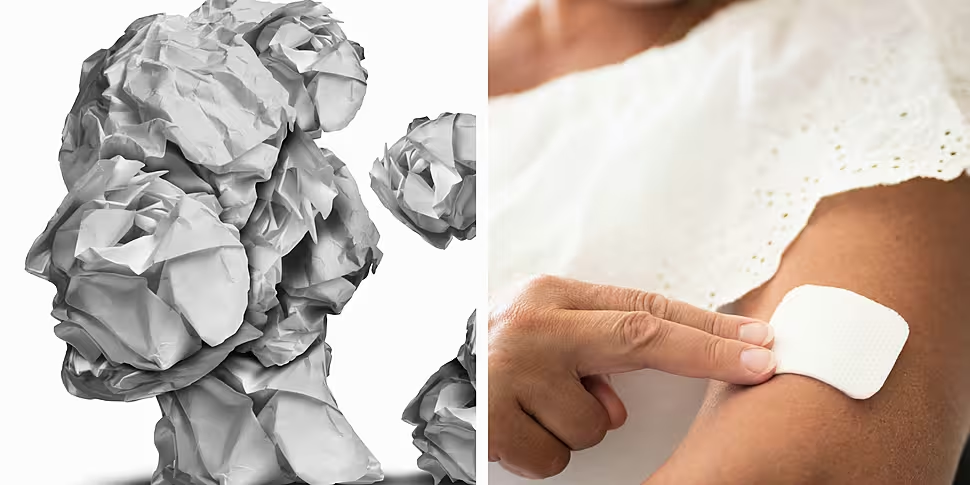A study suggesting a link between hormone replacement therapy and dementia is inconclusive and alarming for women.
That’s according to menopause specialist Dr Genevieve Ferraris, who criticised the Danish study published this week.
“They looked at women who were taking HRT in the years between 2000 and 2018,” she told Moncrieff. “They have determined that there was a link between the use of HRT and dementia.”
While most research studies will also observe a control group to compare results, Dr Ferraris noted there was no comparison between women who used HRT and women who did not to determine differences in neurological conditions.
“Because it's an observational study, we can't actually determine causality from it,” she said.
“For us to determine if women who do not take it have an increased risk, we need to be doing something like a randomised control trial.”
 2GYEYG7 Applying Contraceptive HRT Estrogen Birth Control Patch
2GYEYG7 Applying Contraceptive HRT Estrogen Birth Control PatchDr Ferraris also pointed out the women in the study used oral oestrogen and synthetic progesterone therapy – HRT that is not commonly used nowadays.
“We typically use transdermal oestrogen and bioidentical natural progesterone,” she said. “The HRT they were using were quite different to what we’re currently prescribing.
“Dementia is more common in women in general, and we need to figure out why that is – but is it because they take HRT and then get Alzheimer’s? We can’t really jump to that conclusion.”
'Not a clear conclusion'
Dr Ferraris agreed that this study can be “irresponsible” if it scares women from using HRT when necessary.
“If you think about 20 years ago, with the Women's Health Initiative and the conclusions that were drawn from that, that was misinterpreted,” she said. “And we saw a big decline in HRT prescriptions.
“We need to be mindful of the studies that are being done, and the data that then gets interpreted.
“It’s an alarming conclusion that they have drawn - it's not a clear conclusion at all.”
Using HRT
While there are risks to HRT we “can’t ignore”, such as a small increased chance of breast cancer or stroke, the Danish study does not yet present any real risks.
“The outcomes of the study are not enough for us to warrant stopping the HRT,” Dr Ferraris said.
“As long as they are on the safest type of HRT for them and the most appropriate dose for them and they're getting benefits.”
Listen back here:









